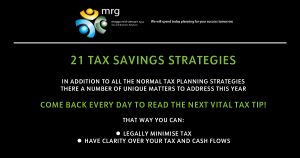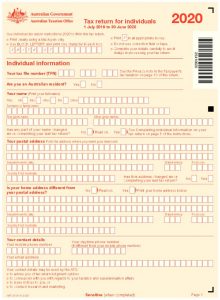Important SG super changes

As you will have read in our Budget analysis and no doubt been notified by your software provider, please ensure that you are calculating SG super as from July at 10%.
It is opportune to remind you that SG is payable on what is called Ordinary Times Earnings (OTE). OTE is not calculated on a number of items including overtime and some bonuses. You can read more here.
And in closing just a reminder that the removal of the $450 monthly; threshold is due not to be removed until 1st July 2022.
Payroll processing is complicated. Moreover errors can prove costly. We are therefore pleased that Xero now interacts with KeyPay (QuickBooks Online has used a limited version for 5+ years). Please ask us if you would like a review of your payroll system.
Looking for tax deduction?

Are you still looking for tax deduction to legally minimise your tax?
If you want to do that and beneficially improve the lives of others then the answer is a donation.
Donations will reduce your taxable income so you will pay less tax. They will also reduce your PAYG Instalments for next year.
Other benefits include:-
-
May reduce or avoid your paying S293 super tax (extra super contributions tax on high income earners).
-
May avoid losing part of the private Heath Insurance rebate.
-
May avoid you being charged Medicare Levy Surcharge.
-
May defer being assessed to make HELP repayments.
-
May retain part of the Family Tax Benefit Part A.
-
May qualify for the Senior Health Concession Card.
And of course the real benefit is knowing you have improved the lives of others.
And here are some common traps to avoid:-
-
Raffle tickets and the like don’t qualify as a donation – a donation is where you give but receive nothing.
-
There is no GST on donations.
-
Make sure you make the donation in the right name. They can’t be claimed by individuals with a net loss. And they should be made by the higher income earner of the household to reduce the after tax cost (or fund other donations).
And what a great time it is to make a donation. Whilst the economy has recovered surprisingly well and share and property prices are surging, many are doing it tough. Food banks and the like are reporting record demand. And please view the following video and link for the wonderful ways that Just Peoples are supporting those in less fortunate countries around the world.
Want to know more – click here
21 tax tips for you

We are posting 21 daily tax tips to help you best manage your tax liability and cash flow.
And whilst mainly for business owners, there are tips for investors as well.
So please come back every day to share in the next valuable tip.
Instant asset write-off tips – Part 3

So here are our last 6 tips and traps to deciding to whether it best to use the instant asset write-off to manage your tax and cash flows.
Before jumping in and buying an asset , please consider these additional considerations:-
-
You can only claim the business portion on an asset that is used both for business and privately – such as a car or lap-top. That said, one can deduct the whole cost of cars provided the Fringe Benefit Statutory Formula method.
-
If your business has current or carried forward losses in excess of your intended asset purchase(s), then your business will not gain any tax saving in this financial year.
-
Please refer to our earlier blog about using this concession to claim back company tax paid in respect of the 2019 and 2020 tax years. The results can be amazing!
-
Small businesses can also use this concession to deduct written down value of the depreciable (general pool) assets. As it was, a small business could write-off the carried forward written down value of assets at 1st July 2020 when less than $30,000.
-
It applies to tangible assets – ones you can touch. This write-off threshold does not apply to intangible assets such as web pages.
-
Beware of glitzy app based products as their rates tend to start above credit card rates. We can put you in contact with financiers who have access to the best deals.
With these 6 and the previous 14 common consideration, please don’t jump in and commit to an expensive asset without being absolutely assured of all of its consequences. We therefore welcome any question you have about the instant asset write-off.
Click here to read the first two sets of tips:-
Instant asset write-off tips – Part 2

As I said in part 1, in all my years as a business and tax advisor to small and medium businesses, there has never been a tax incentive that attracts as much interest as the instant asset write-off.
It’s a great opportunity to manage your tax and cash flows.
the carry back of company losses.
But before doing so, please ensure you have factored in the following considerations (see part 1 last for the first 7 tips):-
-
Your small business must own the asset. Your business either needs to pay for it or finance it by a loan, hire purchase or by way of a chattel mortgage contract.
-
Assets that your business leases from others do not qualify for the write-off (as one does not own the asset until the final payment is made or the lease contract is paid out early).
-
The incentive also doesn’t apply to assets that are leased by your business to others.
-
It’s not about when you buy the asset. Your entitlement to claim is based on when you held the asset first ready for use. So for assets you need to have installed, it is not when you buy it; it is when you can first use it.
-
Make sure you when buy an asset to have the installation date agreed upon.
-
Installation and delivery costs comprise part of the cost of the asset.
-
If you trade-in an asset, it is the cost of the new asset that qualifies. So if your business buys a car for $50,000 and trades in an old car for $8,000, then the deductible write-off is $50,000.
Please come back to this web page for the last of the 20 tips and traps.
20 tips to claiming the Instant Asset Write-Off

In all my years as a business and tax advisor to small and medium businesses, there has never been a tax incentive that attracts as much interest as the instant asset write-off.
And now there is no limit to what you can spent (except for cars)!
And what was to be until December 2020 a $150,000 limit for small businesses has now become a complete write of all equipment purchases for any business with turnover under $5 billion.
In such difficult times as this, it can deliver even greater outcomes when combined with the carry back of company losses.
But before doing so, please ensure you have factored in the following 20 key considerations:-
-
This concession originally only applied to the purchase of new assets. However businesses with group turnover under $50 million can now deduct the cost of second hand assets.
-
It does not apply to building or capital works.
-
If your business sells expensive assets, this expanded concession should prove to be a major buying incentive for your customers; even more so if you offer funding solutions. Ask us if you would like a worked example to use with your customers
-
Only buy an asset if you need it. So, if a company registered for GST buys and asset for $11,000, it will get back $1,000 of GST and will have a tax deduction of $10,000. It will pay $2,600 less company income tax. It will still be $7,400 out of pocket. As tempting as this limit is, don’t get too carried away and buy assets that your cash flow cannot support.
-
A tax deduction in the 2020/21 tax year will have a flow on effect as it will reduce the PAYG Instalments for 2021/22 and part way into 2022/23.
-
An asset purchased in 2020/21 will also have a flow on effect for those small businesses paying GST under the instalment method. It will reduce the GST Instalments for 2021/22 and part way into 2022/23.
-
Writing of large assets may be great for tax but can make your financials look ordinary, possibly disastrous to a current or future financier. For this reason, we now run two sets of depreciation schedules; one for tax and one for accounting / financial statements purposes. Effectively the tax rates are a nonsense and they should not make your financials misleading.
Please come back to this web page for a further 13 tips and traps.
Proper tax planning – includes fixing problems

As much as tax planning is about legally maximising your tax outcome it is also about fixing problems.
Some problems can be fixed by the time the Tax Return; but not all.
So what problems need to addressed now. Some of the main ones are:-
- The time to write off bad debts is know. Don’t think of doing it later as entries are date stamped within cloud programs.
- Trustees need to resolve (and evidence the decision) as to who the trust income will be distributed to. If not, the income is taxed at the highest marginal tax rate.
- Have you made a capital gain this year? If so, might be time to generate a capital loss to reduce or eliminate the tax on that gain.
- If your income is too high you will pay more tax. You might also lose things benefits such as the Family Tax Benefit or the Senior Health Concession Card. Might be time to prepay a few expenses or make donations or super contributions (but please do so only after receiving financial planning advice).
- The biggest one is what is best known as Division 7A. Division 7A is the section of the Tax Act that dictates how loans by companies to individuals and trusts are treated. Such loans must be repaid under a loan agreement with a set formula dictating repayments of both interest and principal. If the company doesn’t make the minimum repayment then the shortfall is taxed as income in the name of the individual or trust. So make sure you at least meet that minimum repayment.
- For new loans, maybe they can be paid out before the end of the financial year. Or even before the 2021 Tax Return is lodged. That way, there is no tax hit.
Proper tax planning is pivotal to maximising your situation. And with proper tax planning you will know what your tax liabilities will be and when they will fall due.
Do you receive this level of service form your accountant? If not you better call us.
Ways to manage a capital gain

Have you made a taxable capital gain this year? If so, time is running out to manage its tax impact.
Before starting our discussion there are three key things to keep in mind:-
-
Capital gains are recognised by contract date; not when you receive the proceeds.
-
Capital gains are halved if the asset was owned for more than 12 months; but companies pay tax on the full gain.
-
But capital losses are offset against the capital gain before applying that 50% discount.
So if you have already made a capital gain in this 2020/21 tax year, is there any other asset you can sell to generate a capital loss that can reduce that gain?
If you still have a net capital gain, other options for reducing the tax liability are:-
-
An investor may be able to prepay interest.
-
You could make concessional (deductible) contribution – but seek financial planning advice first as there are many other considerations to take into account.
-
Make a donation.
-
If a trust is the one which has made or will make a capital gain, see whether any possible beneficiary has any capital losses or are on lower marginal tax rate.
TIP
If you need to sell an asset can you delay executing the contract for two weeks? If so, anything sold in July will not require a tax payment until after the 2021/22 Tax Return is lodged.
As you can gather there is no cookie cutter approach. We welcome your call to discuss your situation and options.
Should you prepay expenses before July?

Prepaying expenses is a common tax strategy.
If you are a small business, then paying an expense in June that is payable in July or perhaps even August makes sense. Paying early will reduce the tax you pay on the 2020/21 year. It will also reduce the PAYG Instalments you pay next year.
It makes even more sense for small companies with the current company rate of 26% falling to 25% come July.
TIP
But just don’t go out any buy anything. A company will save $250 if it spends $1,000 now – but it is $750 out of pocket. If your marginal tax rate is 39% then your tax saving may be $390 but you are still $610 out of pocket. Point is just buy the stuff you need.
But prepaying expenses will not be in all business owner’s best interests including:-
-
Businesses with current year losses – they won’t be paying tax anyway (but read our post on companies who can now carry back losses).
-
Businesses with profits less than the Cash Flow Boost component (as the CFB is non-taxable).
-
Those non-corporate business owners who expect to be in a higher marginal tax rate next year.
So want is best for you? Well that depends on your overall position – and expected position next year. Ad what si the best way to work that out – give us a call.
Best to pay your employee super now?

Most businesses pay tax on an accruals basis. That means that income is recognised when an invoice is raised; likewise expenses when the bill is received. Those assessed on a cash basis pay tax based on when income is received and expenses paid.
Accrual taxpayers can deduct bills received by 30th June and other liabilities incurred.
However this doesn’t apply to employee super.
An employer can only deduct the super it has actually paid during the year.
TIP
Whilst employers have to 28th July to pay the June quarter super, it may be best to pay it now. Paying it now will allow a tax deduction to be claimed within the 2021 Tax Return. You will pay less tax. You will also pay less PAYG Instalments next year.
It’s common sense – might as well pay it now for what is due before the end of next month anyway.
But if covid business life is tough and you are in a loss situation, there is no point in accelerating the cash flow. Mind you, if cash is not the problem, corporate taxpayers may still wish to do so as they can claim back more 2019 and/or 2020 tax under the new loss carry back rules.
As with all years, proper tax planning takes all these considerations and matters into account to deliver you the best result.
We have a great process and one that delivers a plain English report. That report sets out what you need to do and what the tax and cash flow benefits will be. Call us now – it’s best not left to the final days of June.
